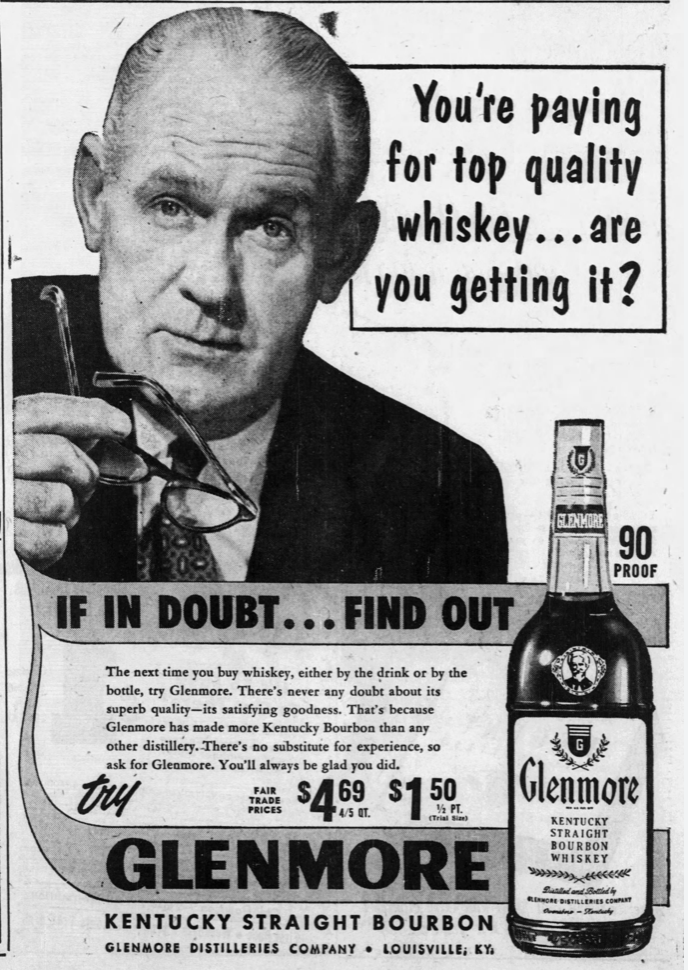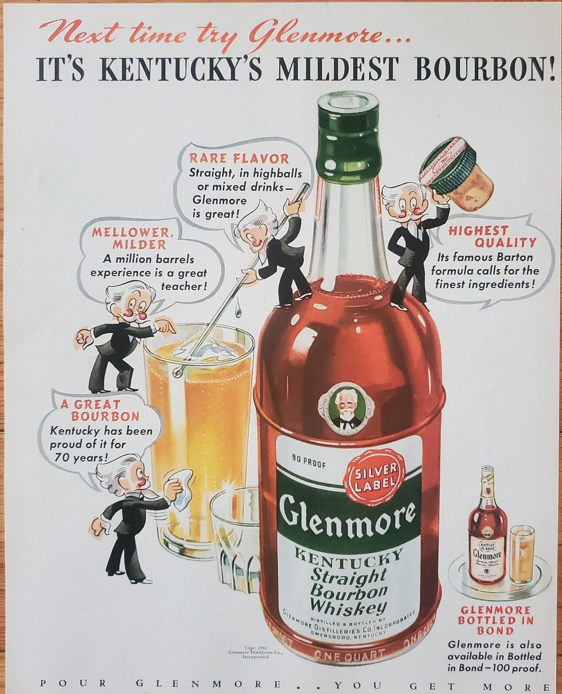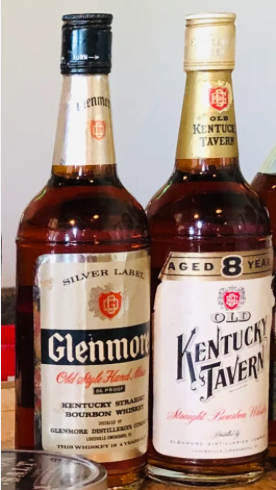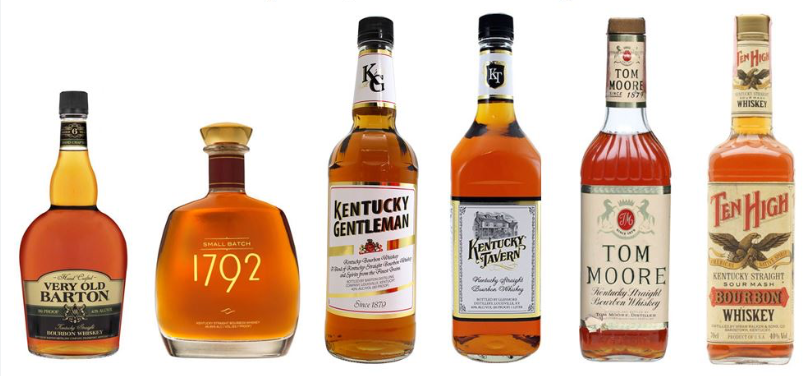Frank Barton Thompson
“Colonel of Kentucky Bourbon”
Frank Barton Thompson was born on July 4, 1895, in Anchorage, Kentucky. He grew up in a family deeply embedded in the world of whiskey. His father, James Thompson, had emigrated from County Londonderry, Northern Ireland, in the 1870s and built a thriving business before acquiring what became the Glenmore Distillery Company in Owensboro, Kentucky, in 1901.
Frank graduated from Louisville Male High School and went on to earn an engineering degree at the University of Michigan, where he learned precision, discipline, and critical thinking skills that would serve him well in bourbon and business. Like many young men of his generation, he also served in the U.S. Army during World War I, was commissioned as a lieutenant, and gained leadership experience early in life.
In 1925, Frank married Ida Maney Webb, marking the beginning of a partnership that balanced ambition with grace. Together, they had four children, raising them at the family’s elegant estate in Owensboro, a mansion built in the 1890s by his father James Thompson, a striking example of Queen Anne–style architecture now on the National Register of Historic Places. When James Thompson died in 1924, leadership of Glenmore passed to his sons. Frank B. Thompson as chairman and president, and his brother James P. Thompson as vice president. Unfortunately, Prohibition arrived just a few years later in 1920, shaking the American spirits industry. Under Frank’s leadership, Glenmore initially pivoted to produce vinegar, a short-lived but moderately successful venture; however, Glenmore was fortunate enough to obtain one of the rare government licenses to bottle whiskey for ‘medicinal purposes’ during the entire 14-year dry era, a move that secured the business financially. This stroke of luck meant that when Prohibition was repealed in 1933, Glenmore entered the legal whiskey market with over 31,000 barrels of aged bourbon already in place and a fully operational production facility, an advantage that few others had.
Frank Thompson was formally known as Colonel Frank B. Thompson, and with good reason. Though his National Guard commission wasn't activated after Pearl Harbor, the 46-year-old enlisted in the U.S. Army as a private, rebounding into service and ultimately rising to Lieutenant Colonel and battalion commander in the 158th Regimental Combat Team. After the war, he returned to Glenmore confident and experienced in leadership, ready to guide the company into post-war expansion and innovation.
In the years following World War II, Glenmore Distillery thrived. By 1946, the distillery had barreled its two-millionth barrel of whiskey, a testament to its scale and endurance. Under Colonel Thompson’s tenure, the company diversified and expanded. It acquired the Yellowstone Bourbon brand in 1944, entered import and cordial markets, launched Glenmore Gin and vodka, and challenged industry norms by being one of the first distilleries to employ women as sales agents in the 1950s.
Glenmore magazine ads from the late 1940s/early 1950s.
Throughout two and a half more decades of expansion and growth, Glenmore maintained its status as a key player in bourbon. Frank led Glenmore until he stepped down in 1974, when he was diagnosed with brain cancer. His brother, James “Buddy” Thompson, initially succeeded him but later sold the company in 1991 to Guinness’s United Distillers, ending a 90‑year family tenure that had begun with James Thompson’s purchase of the Monarch distillery in 1901. While Glenmore ceased distilling at its Owensboro site in 1993, the facility continued as a bottling and warehousing operation and remains one of the largest bottling centers in the U.S. under the ownership of Sazerac Company, which revived the Glenmore name in 2009.
Colonel Thompson passed away in 1990 at the age of 95, leaving behind a distilling legacy that spanned generations, including the brands Kentucky Tavern, Old Thompson, and Yellowstone Bourbon, which all continue today under different ownership. Frank B. Thompson’s legacy lives on in more than old bottles. He shaped a distillery that survived Prohibition, supported wartime continuity, expanded into new products, and remained relevant through decades of change.
The Colonel’s visage once appeared prominently on stoneware jugs; in time, the hearty portrait was softened to a gentler medallion, but the legacy endured. Frank Barton Thompson’s life was defined by duty, strategy, and heritage. He embodied a rare balance: a military man who also valued family and craftsmanship.
Sources:
The Filson Historical Society, The Frank Thompson Collection, July 2021
Daviess County Bicentennial Celebration, Glenmore - Distillery #24
bourbonveach.com, Michael Veach, April 29, 2019
Pre-Pro Whiskey Men Blogspot, May 30, 2016
East Texas Bourbon Society, “The History of Sazerac”
Contributed by Tracy McLemore, Fairview, Tennessee








